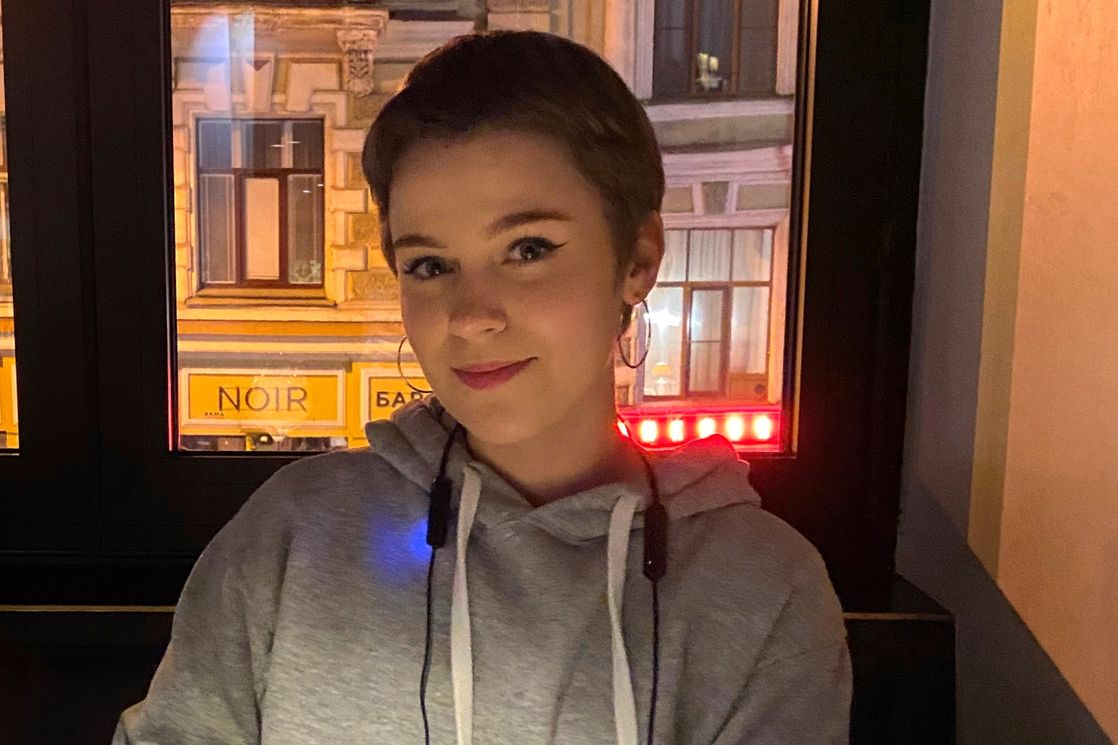‘Consistency of Argumentation and Logical Reasoning are Essential on the University of London Exams’

The names of the highest achieving students for the 2019-2020 academic year in the ‘HSE University and University of London Parallel Degree Programme in International Relations’ have been announced. Among those recognized were seven students who received awards from the University of London. Some students were awarded several prizes.
Each year the London School of Economics acting in cooperation with the University of London selects the best students of their partnership programmes from across the globe to recognize their hard work and academic achievements.
Last academic year, the Academic Achievement Award (for the best academic performance in the programme) was given to Nadezhda Semyanova, Ekaterina Zorina, Ekaterina Konnova, and Rustam Magomedov. The James Stewart Cook Convocation Trust Prize (for the highest mark in ‘Introduction to Political Science’) was awarded to Valeria Rusina, and the Top Scorers (for topping the world in the major subjects) were Ekaterina Zorina, Valeria Rusina, Sergey Lavrov, and Polina Alekseeva.
The online awarding ceremony is scheduled for the end of March.
Ekaterina Zorina, fourth-year student, winner of the Academic Achievement Award, and the Top Scorer in Economic History since 1900

There are two key reasons behind my decision to study in the ‘HSE University and University of London Parallel Degree Programme in International Relations’. Firstly, I wanted to learn another foreign language in addition to English. Secondly, this programme provides fundamental knowledge on international relations: you get insight into what the world is like and how various global processes work. The slogan of our programme is ‘Be Global’. During my first year, I took economics as my major, but now I’m more interested in the intersection of economics and political studies. I am particularly keen on sustainable development and energy security.
I wasn’t exactly thrilled about history back in school—either the classes were really boring or it took me too much effort to memorize the facts. However, as a university student I realized, much to my surprise, that I liked tracing cause-effect relationships, studying how certain historical events influenced the further development of some countries and international relations. When I was a second-year student, I earned the highest mark in ‘History of Cold War’, which is one of the subjects of the London programme.
The course in economic history turned out to be even more interesting—it let me look at international development process from the point of view of economics rather than just from a historical perspective
Apart from delivering knowledge in economic development of different industries, countries, and the world, this course shows what processes affect phenomena such as protectionism, imperialism, or global crises. I wouldn’t say I had to work particularly hard to prepare for this exam. I enjoyed the process, as there was no need to study vast amounts of information or read one book after another. The most important thing was to understand the common patterns and inherent logic.
It was a pleasant surprise for me to find out that I had topped both my course mates and all international students at this exam. The £250 grant from the University of London was a nice bonus, while my achievement was a good thing to put on my CV. I’m going to receive my Bachelor’s degree this summer, but before I apply for the Master’s programme, I would like to work for an international consulting firm or another company that deals with sustainable development, or in an economic or environmental organization. I’m sure that the doors of Russian and international companies are open to graduates of HSE University and the University of London.
Nadezhda Semyanova, 2020 graduate, winner of the Academic Achievement Award, and the only holder of the First Class Honors Degree in her year

Even now, I don’t quite understand how I was able to graduate with honors from the HSE University and receive the First Class Honors Degree from the University of London. I can’t say I spent too much time or effort on my studies. With the midterm exams approaching, my goal was to earn a score of at least 6 or 7 on the HSE exams and 50–60 on the London University exams. It seemed like I was studying on low-battery mode, making a minimum effort and aiming to pass the exams confidently enough, but every time I received higher scores than I’d expected.
I think I did so well because I managed to focus on a small amount of literature only, without delving into too many books and articles. The more you read on a specific topic, the more you want to demonstrate your breadth of knowledge at the examination. The more authors and articles you mention, the higher the risk that you may fail to present your arguments clearly and thereby confuse the examiner.
Consistency of argumentation and logical reasoning are essential on the London examinations. You can mention fifteen authors, but your assay will never receive high marks unless it has a core message and a logical chain of reasoning
My friend and I would prepare for our exams together—we explained to each other the same articles hundreds of times and each time we forgot what they were about. Then we would use our notes to recollect the same things, we would panic, laugh, and start all over again. When I was sitting for an exam, I imagined myself explaining the topic to someone who knows nothing about it. I used simple language without going into details, and I supported each topic sentence with three arguments. Whenever I was trying to clarify the difference between, say, electoral systems to make it clear to a ninth grader, my assays turned out to be invariably consistent and clear.
When I was in my third year of studies, I decided to pursue a career in HoReCa. I am currently employed by Marriott, a major global hotel chain. Of course, I’m only starting to climb the career ladder, but I really like what I’m doing. It was my conscious decision not to apply for a Master’s degree, because work experience is more valuable in this industry than an industry-specific university degree. Besides, I’m a bit tired of studying. I am the type of person who prefers to finish their studies as soon as possible to be able to do a real job.
I must admit, though, that I’ve been thinking of continuing my studies, but other universities that offer the Master’s programmes in hospitality management pale compared to the HSE University. HSE has set the high bar I always want to reach. I’m going to work for a few years and then apply for an MBA degree at a European or American university. I like the online course at the University of London and I would like to continue my studies in this format.
See also:
Pivot to the East: A Comprehensive Study of the Cultural and Civilisational Centres of the Non-Western World is the Top Priority
China and the Chinese world, South Asia, Southeast Asia, the Arab countries, Iran, Turkey, Central Asia and Africa are gaining new significance in Russia’s foreign policy. However, we do not know enough about the Eastern countries. It is necessary to change the priorities in education, starting from grammar school. Prospects for the development of domestic Oriental studies in the context of the new stage in the development of the system of international relations were discussed at a round table at HSE University.
‘I Admire HSE Students’ Eagerness to Learn, to Discuss, to Broaden Their Perspectives’
Robert Romanowski was a ‘Digital Professor’ at HSE University in November 2021. In his interview for the HSE News Service, he talked about the specifics of online teaching, his course on Strategic Branding, and the skills that are essential for marketing professionals today.
Russia and Africa: Time to Expand Cooperation
There is major potential for economic and humanitarian cooperation between Russia and African countries. Particularly, Russian organisations and universities can help transfer competencies and knowledge in the fields of agriculture, energy, industrial production, environmental management, climate change, and public administration. Experts and representatives of African embassies in Russia discussed these issues at the round table ‘Russia-Africa Sharing Knowledge’ hosted by HSE University.
The Brain in Space: Investigating the Effects of Long Spaceflights on Space Travellers
As part of an international project conducted with the participation of Roscosmos and the European Space Agency, a team of researchers used differential tractography to analyse dMRI scans ofcosmonauts’ brains and found significant changes in brain connectivity, with some of the changes persisting after seven months back on Earth. The paper is published in Frontiers in Neural Circuits.
HSE University-Perm and the Training Centre of the Uzbek Ministry of Finance Sign Cooperation Agreement
HSE University in Perm has become the first academic partner of the Training Centre under the Ministry of Finance of the Republic of Uzbekistan. The parties have signed a cooperation agreement in education and research.
HSE University Strengthens Ties with Netherlands in Agricultural Research and Education
On November 9, 2021, HSE University signed a memorandum of understanding with Wageningen University & Research, a major university in the Netherlands and one of the leading agricultural research institutes in the world. Participants of the signing ceremony included HSE University Rector Nikita Anisimov, President of the Wageningen University & Research Executive Board Professor Louise Fresco, and Dutch Ambassador to Russia Gilles Beschoor Plug.
The Majority of Russians Do Not Support Microchip Implants
The majority of Russians would not agree to being fitted with microchip implants for any purposes—medical or otherwise. A joint study conducted by HSE University’s International Laboratory for Applied Network Research and Aventica found that respondents believe the risks of personal data leaks and misuse to be too high.
‘We Can Now Say That the Finance Conference Is Global’
The 10th International Moscow Finance Conference, organized by HSE ICEF, took place on October 29–30 online. Vladimir Sokolov, Head of the International Laboratory of Financial Economics, which hosted the conference, talks about the participants, the key presentation topics and how they will impact the global economy.
HSE University Scholars Study Green Transition Risks and Greenhouse Gas Emission Regulation
The UN Climate Change Conference is taking place from October 31 to November 12 in Glasgow. The conference focuses on preventive measures against the catastrophic and irreversible consequences of rising average global air temperatures. Igor Makarov, Head of the HSE Laboratory for Economics of Climate Change, will be taking part in the Glasgow conference. In the following interview, he speaks about the pressing problems Russia and the world are facing, and the research HSE scholars are doing on climate change.
Applications to Speak at eSTARS 2021 Conference Accepted Until November 15
HSE University and Coursera are bringing together the world’s leading researchers, professionals, education and technology leaders, and business community representatives for the fourth international research conference eLearning Stakeholders and Researchers Summit 2021 (eSTARS). This topic of this year’s summit, which will run from December 1–2, 2021,is ‘Digital Transformation: Global Challenges to the Education System’.


